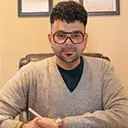If you’re constantly brushing white flakes off your shoulders, you’re not alone—and it’s time to get to the root of the problem. Dandruff isn’t just annoying; it’s a sign your scalp needs help. In this blog, we’ll break down the causes of dandruff, from dry skin and fungal overgrowth to product buildup and stress. Left untreated, it can lead to itching, irritation, and embarrassment. But don’t worry—there is a way to stop it for good. Backed by dermatological insight, this guide will help you understand why dandruff happens and reveal proven solutions to reclaim a flake-free, healthy scalp.
What Is Dandruff?
Dandruff is a common scalp issue with flaking skin, itchiness, and irritation. Anyone can be affected, no matter their age or gender. While it’s not dangerous, it can be persistent and difficult to treat without understanding its underlying causes.
Top 6 Causes of Dandruff You Might Be Overlooking
Identifying the causes of dandruff is the first step toward effectively managing it. Here are the most common culprits:
- Dry Skin: Common during winter, a dry scalp causes tiny white flakes and itching.
- Oily Scalp & Seborrheic Dermatitis: This inflammatory skin condition causes greasy, yellowish flakes and redness.
- Fungal Overgrowth (Malassezia): A yeast that naturally lives on the scalp can grow out of control and trigger dandruff.
- Product Buildup: Overusing hair products like gels, sprays, or even dry shampoo can clog follicles and irritate the scalp.
- Poor Hygiene: Washing your hair infrequently can cause a buildup of oil, dead skin cells, and product residue, which may worsen dandruff.
- Diet & Stress: Lack of nutrients and chronic stress can weaken the scalp’s natural defenses, making dandruff more likely.
Is It Dry Scalp or Dandruff? How to Tell the Difference
Dry scalp and dandruff are often confused, but they’re different. A dry scalp typically causes small, dry flakes and tightness, especially in cold weather. Dandruff, on the other hand, results in oily, larger flakes and can persist regardless of the season. If your scalp is itchy and flaky even after moisturizing, you’re likely dealing with dandruff.
How Fungal Overgrowth Contributes to Persistent Flakes
An overgrowth of Malassezia—a yeast that feeds on scalp oils—is a primary cause of dandruff. When this fungus multiplies beyond normal levels, it triggers inflammation, resulting in scaling, itching, and redness. Certain conditions—like oily skin or immune responses—can make the scalp more vulnerable to this imbalance.
Can Hair Products Cause Dandruff? The Truth About Buildup
Yes—using too many hair products or failing to rinse them properly can irritate your scalp. Ingredients like alcohol, synthetic fragrances, and preservatives can dry out or inflame the skin. Over time, this can lead to a condition known as contact dermatitis, which mimics dandruff symptoms. Opt for gentle, sulfate-free shampoos to minimize irritation.
The Role of Stress and Hormones in Triggering Dandruff
Stress affects more than your mood—it can wreak havoc on your skin and scalp. High cortisol levels disrupt oil production and immunity, creating a favorable environment for dandruff. Hormonal fluctuations, such as those during puberty or menopause, can also spike oil production and contribute to flaking.
Who’s More Prone to Dandruff? Common Risk Factors Explained
Although dandruff can impact anyone, some groups are at a higher risk:
- Men typically have more active oil glands, which increases their likelihood of developing dandruff.
- Teens and young adults often experience dandruff due to hormonal changes.
- People with oily skin or conditions like psoriasis or eczema are also more susceptible.
Best Dermatologist-Recommended Treatments for Dandruff
A targeted approach is key to managing dandruff. Dermatologists often recommend:
- Medicated Shampoos: Look for ingredients like ketoconazole, zinc pyrithione, salicylic acid, or selenium sulfide.
- Scalp Exfoliants: These help remove dead skin cells and product buildup.
- Antifungal Antifungal Treatments: These are especially useful if Malassezia is a major contributor.
- Consistent Washing Routine: Keeping your scalp clean and balanced is crucial.
Rotate between dandruff shampoos every few weeks to prevent resistance.
Natural Remedies to Fight Dandruff—Do They Work?
Some natural ingredients may help reduce flaking and inflammation:
- Tea Tree Oil: Has antifungal antifungal and antibacterial properties.
- Aloe Vera: Soothes irritation and moisturizes the scalp.
- Apple Cider Vinegar: It aids in maintaining scalp pH balance and minimizing fungal growth.
While natural remedies can offer relief, they may not be strong enough for severe cases. Use them as complementary treatments alongside medical options.
How to Stop Dandruff for Good: Long-Term Prevention Tips
Treating dandruff is one thing—preventing it is another. Here’s how to keep your scalp healthy long-term:
- Wash your hair regularly with a mild, dandruff-fighting shampoo.
- Avoid overwashing or harsh products that strip your scalp’s natural oils.
- Manage stress with mindfulness, exercise, or other relaxation techniques.
- Maintain a nutritious diet high in zinc, B vitamins, and omega-3 fatty acids.
- Avoid scratching your scalp, which can worsen inflammation.
Final Thoughts
Dandruff may be a frequent annoyance, but it doesn’t have to be something you live with. By understanding the causes of dandruff and taking action with the right treatments and habits, you can finally say goodbye to flakes—for good. If your symptoms continue, don’t wait to seek advice from a dermatologist for a customized treatment approach.








